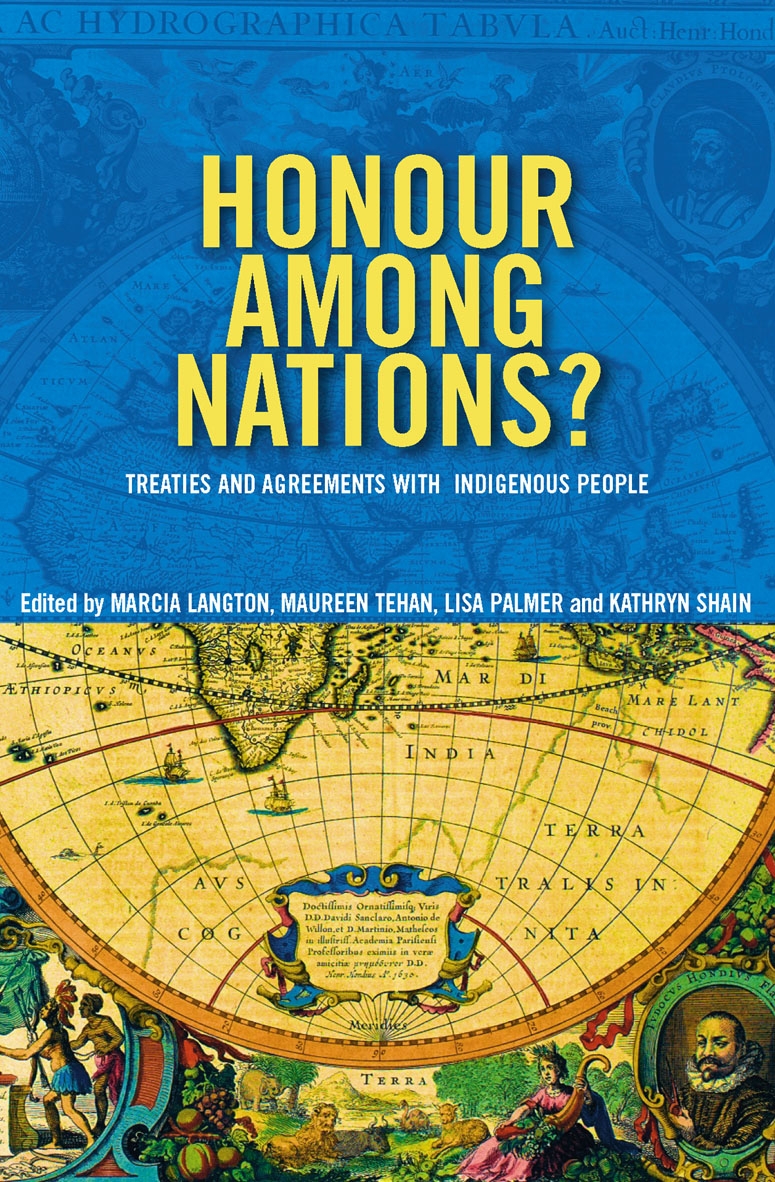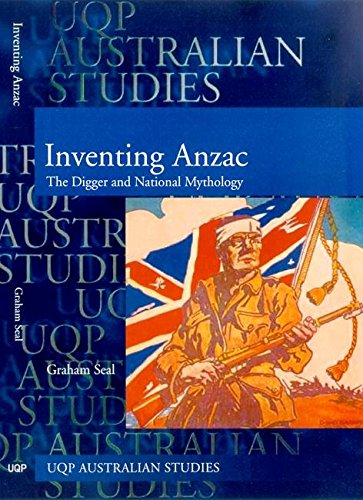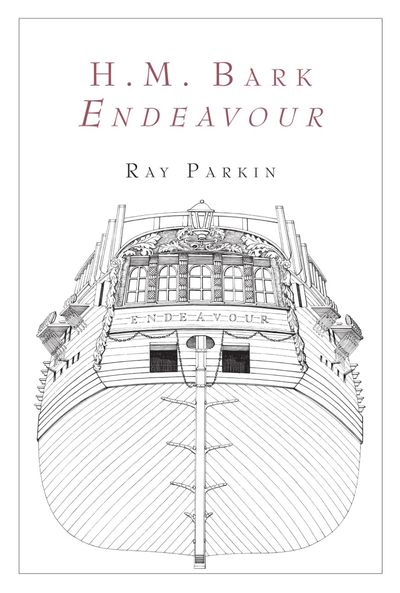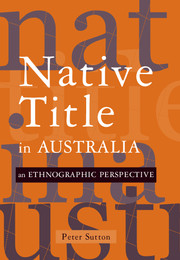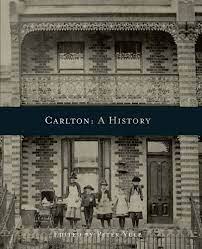Australian History
Honour Among Nations?: Treaties and Agreements with Indigenous People edited by Marcia Langton et al.
The word ‘honour’ is rarely heard in contemporary Australian English. It belongs to a time when the public behaviour of individuals and governments was judged by standards found in a moral code with its roots in medieval chivalry. To be ‘honourable’ was to be known for doing right. When honour was lost, disgrace followed. With the disappearance of ‘honour’ from our public language, perhaps we have also lost the possibility of disgrace.
... (read more)Inventing ANZAC: The digger and national mythology by Graham Seal
‘Select arresting quotes. Let your characters speak if the evidence is there,’ A.J.P. Taylor told his Oxford history students. In his own best-selling The First World War: An Illustrated History, struggling to convey something of the enormity of the disaster of the third battle of Ypres, Taylor wrote: ‘On 8 November Haig’s Chief-of-Staff visited the fighting zone for the first time. As his car struggled through the mud, he burst into tears and cried: “Good God, did we really send men to fight in that?” His companion replied: “It’s worse further up.”’
... (read more)The Europeans in Australia: Volume Two: Democracy by Alan Atkinson
Manning Clark rescued Australian history from blandness and predictability by making Australia a cockpit in which the great faiths of Europe continued their battle, with results that were distinctive. He concentrated on the great characters who were bearers of one of the faiths: Protestantism, Catholicism, or the Enlightenment.
... (read more)The Gatton Murders by Stephanie Bennett & The Society Murders by Hilary Bonney
‘The greatest trick the Devil ever pulled was convincing the world he didn’t exist.’ A throwaway line, uttered by one of the low life characters in the film The Usual Suspects (1995), may actually provide a hint to understanding the immense, and unexamined, popularity of so-called true crime writing, at least according to Carl Jung. Since the Middle Ages, wrote Jung, the devil’s role has devolved to evil-doers in human form ‘to whom we gratefully surrender our shadows. With what pleasure, for instance, we read newspaper reports of crime! A bona fide criminal becomes a popular figure because he unburdens in no small degree the conscience of his fellow men, for now they know once more where the evil is to be found’.
... (read more)James Jupp enjoys well-deserved iconic status among Australian historians of migration. Among his prodigious output, Arrivals and Departures (1966) was ahead of its time in combining the ‘big picture’ of postwar immigration policy history with intimate insights into migrant life and experience. The Australian People: An encyclopedia of the nation, i ...
The Web of Science: The Scientific Correspondence of the Rev. W.B. Clarke, Australia’s Pioneer Geologist (2 Volumes) edited by Ann Moyal
The leading early geologist in Australia was Reverend William Branwhite Clarke (1798–1878). His father was a blind schoolmaster in a Suffolk village, and the family was not well off. Still, they managed to send William to Jesus College, Cambridge, where he studied to enter the church. During his time as a student, he came under the influence of the redoubtable professor of geology Adam Sedgwick and took up geology seriously. Nevertheless, he became a clergyman and held a series of minor ecclesiastical positions, besides teaching at his father’s old school for a period. He also undertook geological studies, was elected a Fellow of the Geological Society and published a number of (fairly minor) papers in Britain.
... (read more)Charles Edwin Woodrow Bean was born in Bathurst, New South Wales, in 1879, but his family moved to England ten years later. Bean returned to Australia in 1904 and became a junior reporter on the Sydney Morning Herald. On assignment in western New South Wales to produce a series of articles on the wool industry, Bean decided that the most important part of the industry was the men on whose labour it depended. He collected these articles in On the Wool Track, published in 1910. Bean’s monument is his official history of Australia in World War I, which can be – and has been – interpreted as an exegesis of his famous sentence: ‘it was on 25th April, 1915, that the consciousness of Australian nationhood was born’. But the earlier On the Wool Track is an Australian classic, also: an elegant memorial of a vanished pastoral age.
... (read more)The official account of James Cook’s first voyage in the Endeavour (1768-71) was published in 1773. The account, being an edited version of Cook’s journal, occupies the second and third volumes of John Hawkesworth’s An Account of the Voyages Undertaken by the Order of His Present Majesty for Making Discoveries in the Southern Hemisphere. The first volume includes voyages by Byron, Wallis and Carteret – all seminal voyages in the history of the British Empire. We need to remember that Cook represents the culmination of the scientific discovery in the southern hemisphere, beginning with William Dampier in the late seventeenth century.
... (read more)Native Title in Australia by Peter Sutton & Crossing Boundaries edited by Sandy Toussaint
The cover blurb to Peter Sutton’s book announces that: ‘Native title continues to be one of the most controversial political, legal and indeed moral issues in contemporary Australia.’ The moral issue, qualified by the adverb, is perhaps the one that most strongly engages the general reader, but it is not the central concern of these books that are mainly for the specialist reader. Morality, ‘indeed’, is something that the social scientist must keep at bay, in order to do the work that, as a native title expert, he or she is qualified to do. The expert, usually an anthropologist, provides evidence within the terms of the various native title acts, translating the knowledge of indigenous informants so that it can count in the courts.
... (read more)When is a suburb not a suburb? When it is an inner-urban locale with a distinctive café culture, its own postcode and football team, but no town all. And here’s another: how did an Old English word meaning ‘churl’s farm’ come to be assigned to a swanky inner suburb of a major city in the southern hemisphere? These and numerous other questions are answered in Carlton: A History. This encyclopedic book tells a fascinating story that resonates way beyond its notional suburban boundaries.
As Melbourne grew, its suburbs became too vast for one local government body to administer, and areas were carved off to form separate municipalities: Richmond, Collingwood, Fitzroy, South Melbourne, North Melbourne. Carlton, however, despite periodic agitation from its residents, has remained within the boundaries of the Melbourne City Council.
... (read more)
